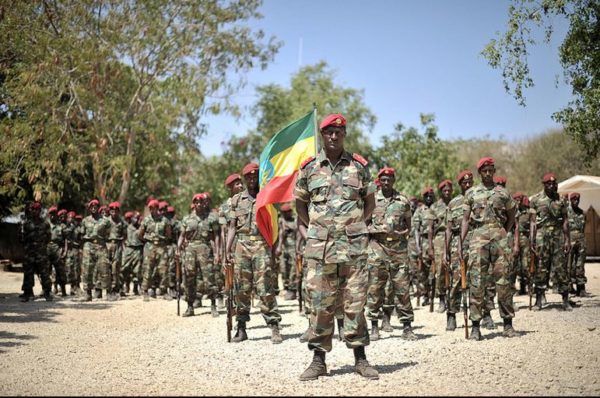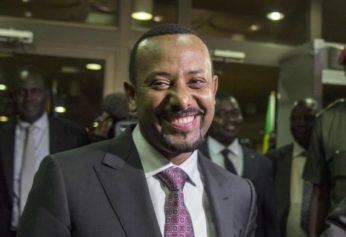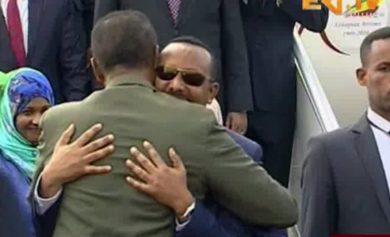
via bravoministries.wordpress.com
ADDIS ABABA, Ethiopia (AP) — Ethiopian lawmakers voted Tuesday to lift a state of emergency imposed three months ago across the country to curb widespread anti-government protests.
The ending of the emergency rule two months before it was due to expire is the most significant reform so far by the country’s young new Prime Minister Abiy Ahmed, who has promised change.
The controversial emergency rule, imposed in mid-February after deadly protests, mainly in the Oromia and Amhara regions, led to several hundred arrests.
Ethiopia’s parliament vote to lift the emergency rule was by a general show of hands. Eight members abstained from the vote and a few members raised concerns, citing security breaches in some parts of the country.
The anti-government protests have persisted for more than two and a half years and brought the previous prime minister to resign. Hundreds of demonstrators were killed in the protests and several thousand detained, the majority of whom have since been released. The crippling protests were mainly in towns across the restive Oromia region, the largest of Ethiopia’s nine provinces.
Since Abiy, 42, became prime minister in April, his government has released several thousand prisoners and tensions in restive areas have dramatically declined. Some of the high-profile releases include an Ethiopia-born Briton, Andargachew Tsige, and a Swedish doctor, Fikru Maru.
The previous administration had imposed an earlier state of emergency in 2016 and 2017 in which more than 22,000 people were arrested before it was lifted nine months later.
Rights groups claimed people were beaten and subjected to arbitrary detentions under the previous emergency rule. The government released most of those arrested after what it described as “training.”
Most Ethiopians are positive about the new prime minister’s reforms that include inviting foreign-based opposition parties to return home and an effort to create a national consensus. Calls are now being made for controversial anti-terrorism, media and civil society laws to be scrapped, too.


